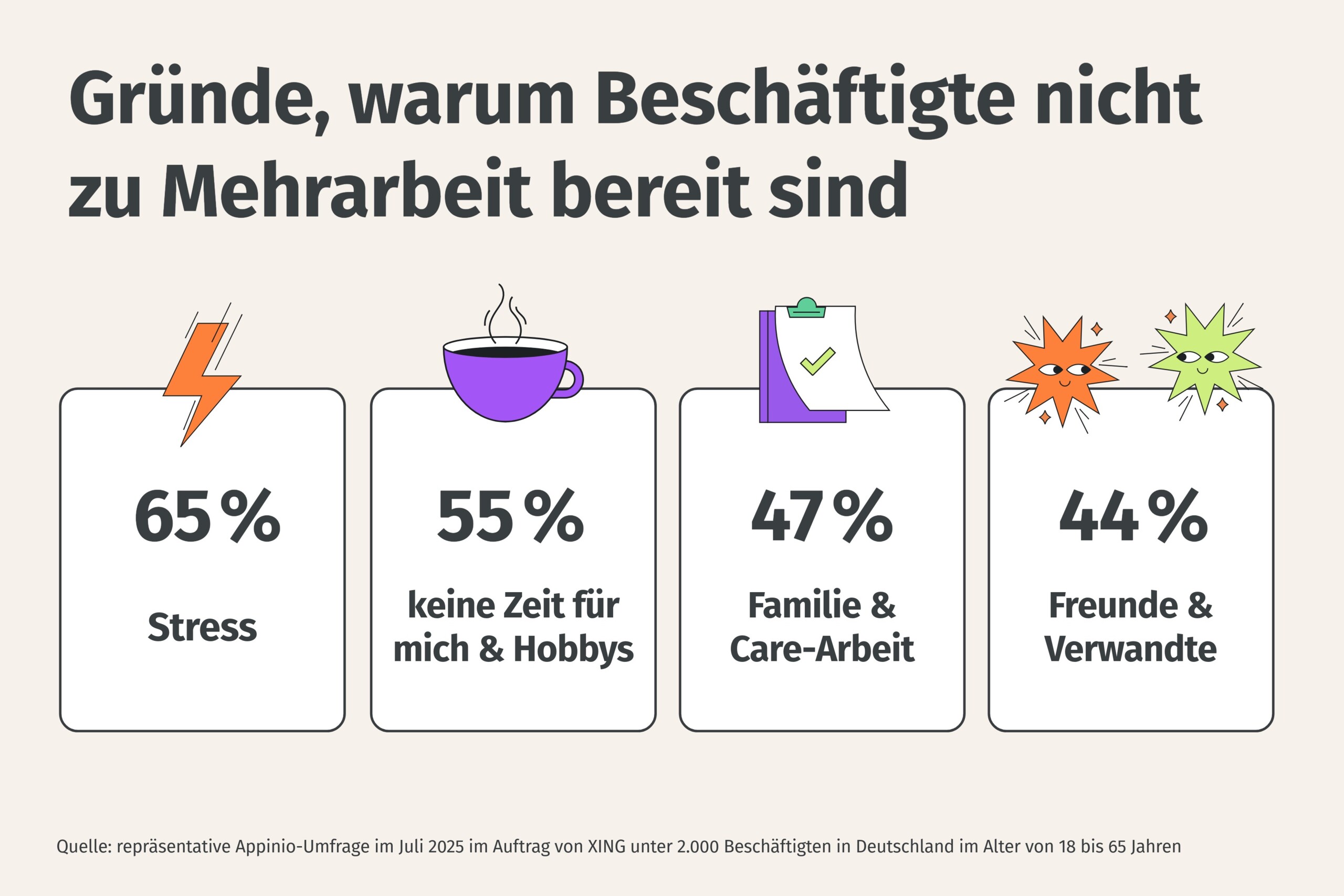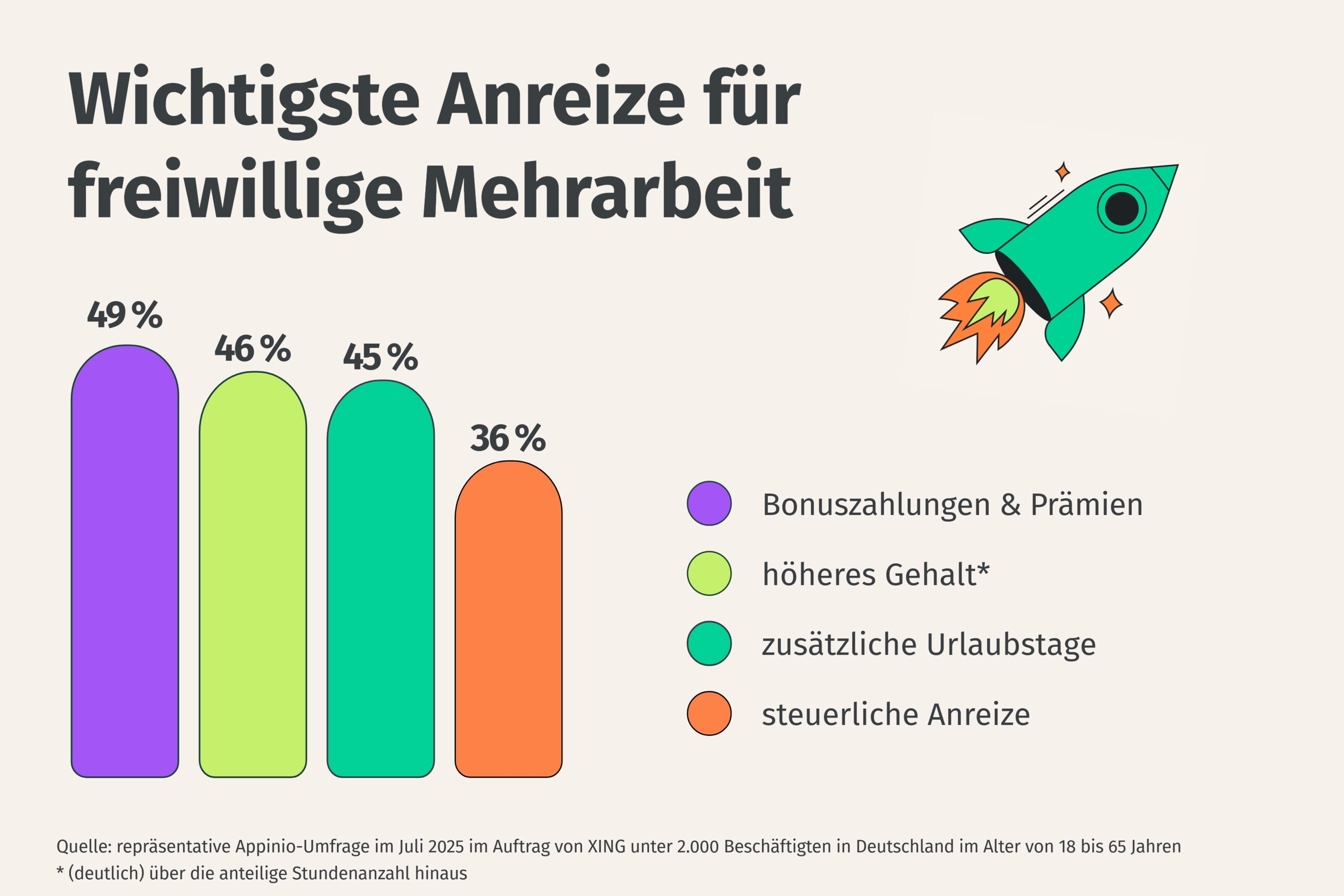Two-thirds (67%) of interviewees would like to work less, and 64% believe that more work is not needed to maintain prosperity. Despite experiencing a shortage of skilled labour in their day-to-day work, more than half of those surveyed (60%) were unwilling to work longer. When asked whether they would work more, age played an important role. Just over half of 18 to 24-year-olds (54%) said they would refuse to work more, compared to around two-thirds of 55 to 65-year-olds (67%). The main reasons cited by interviewees were stress (65%), not enough time for themselves or their hobbies (55%), not enough time for care work (47%), and not enough time for relatives and friends (44%). Those in the 25–34 (74%), 35–44 (71%) and 45–54 (66%) age groups would like to reduce their working hours, unlike 58% of 55–65-year-olds. Surprisingly, respondents expressed greater satisfaction with their work-life balance than in 2024. Some 56 per cent are satisfied or very satisfied compared to 52 % in 2024. A mere 4 per cent (down from 7 per cent in 2024) are very dissatisfied or dissatisfied
A survey of 3,500 employees in the German-speaking countries, conducted by Appinio on behalf of Xing in July, sought to identify reasons for an unwillingness to work more. The results are available in the Xing Labour Market Report 2025. It also gives insight into how employees view their prospects on the labour market. This comes against the backdrop of a recession, shortage of skilled labour and political calls for longer working hours and later retirement.
Hardly any interest in overtime

Motivation to work more
Financial reasons (59%) and having fun at work (56%) are motivators for not wanting to work fewer hours. Money is a key factor for those who would like to work more (69%) followed by enjoyment of work (42%). Monetary aspects incentivise people to work more. These incentives include bonuses and premiums (49%), a significantly higher salary than the proportionate number of hours worked (46%), additional holidays (45%), a salary proportionate to the number of hours worked (43%), and tax incentives (36%). "The figures show that many people are willing to go the extra mile and work harder if they are offered the right incentives,' said Thomas Kindler, Xing's Managing Director.

Labour market prospects
Similar to 2024, employees surveyed were rather pessimistic about finding a new job. 59 per cent said it was "rather" to "very" difficult (2024: 58%), while 41 per cent said it was "not at all" to "rather not" difficult (2024: 42%). However, many experience the everyday shortage of skilled workers, e.g., the difficulty of recruiting staff (38%; 2024: 41%). Around a third (30 per cent) reported a higher workload or increased stress levels. Around 20 per cent had to take on more responsibility while 27 per cent complained of low morale and motivation within the company. This has a negative impact on the quality of work (25 per cent), and a fifth feared burnout (20 per cent). "The results show that people want to work - but under conditions that enable a healthy, fulfilling life," Kindler said. "For many employees, time for family, friends and relaxation is just as important as a career. Companies need to take this reality seriously, but they can also use it to their advantage."
mm/sb/pb
Sources and further information
More
Similar articles

Employees in Hamburg average highest salary

Skillbased offering new momentum for working world

International skilled workers welcome in Hamburg
